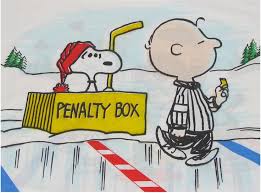 April 2025
April 2025
When it comes to enforcement of a condominium’s governing documents – declaration, by-laws and rules – it is possible to be overly lax or aggressive. Both are detrimental to condominium governance.
Balance is a necessary component to enforcement commencing with educating residents and relying on full enforcement for those who have been educated and fail to comply. When infractions occur, residents and owners need an opportunity for voluntary compliance before enforcement measures commence.
The Condominium Authority Tribunal (CAT) in its rulings make it clear that the condominium corporation has a duty to enforce their governing documents. There is no leeway for allowing a difficult owner or resident get away with infractions.
Exercising Discretion
The board can exercise their discretion not to enforce governing documents. When doing so, they must be able to provide a valid reason. When condo rules are clear and mandatory, such as no smoking or improper parking, the condo board has no discretion in enforcement. A failure to enforce any clear and mandatory rule is a failure to fulfill their duty to enforce.
Some rules are clear. Others can be written in a way that offer discretion by inserting words that include “may”, “should” or “could”. Condo rules should be reviewed to determine whether or not there is any discretion built into them. When discretion is exercised, reasons should be documented in case the discretion is challenged.
Enforcement can be too extreme. In one parking situation, a vehicle was ticketed and towed for failing to display a parking pass. CAT ruled that these actions were too extreme and that the corporation acted unreasonably when exercising their discretion to have the vehicle towed. The owner was a new resident who had never had a prior infraction. They had received no warning prior to an action – towing – that was identified as a possibility. This caused unreasonable difficulty and cost to the owner that was excessive.
Progressive Enforcement and Investigation
It is a good practice to adhere to progressive enforcement.
Rules should be clearly posted in a way that is accessible to residents. In addition to having them fully available online, area-specific rules should be posted as appropriate. Waste and recycling rules would be posted in the trash room. Exercise room rules would appear in the exercise room.
First-time offenders would receive lesser consequences such as a written warning asking them to comply. Newer residents, who may not be familiar with specific rules, are provided with reasonable notice and the chance for voluntary compliance. Repeat offenders would receive more significant consequences. Their electronic fob may be reprogrammed to deny access to certain common areas. After multiple warning letters, the offender may receive a legal letter and the owner required to pay legal costs.
A condominium corporation is required to undertake an investigation prior to making accusations. They cannot accuse a resident with smoking or unreasonable noise in their unit and undertake enforcement actions without an investigation providing reasonable proof. This could be achieved by visiting the unit, photograph, video recording, or third-party documentation. At the very least, this requires more evidence than someone making a verbal or written complaint.
Chargebacks
Innocent owners should not be required to pay the costs of enforcement when one resident or owner breaks the rules. When a condominium corporation is successful in obtaining a compliance order that does not include all costs, outstanding costs can be charged back to the unit.
Chargebacks are the way to recover these expenses from the offender.
 Condominiums are not businesses that operate to make a profit. They are communities and their costs are borne by individuals. This can be achieved fairly and reasonably through gradual enforcement of governing documents and cost recovery with chargebacks.
Condominiums are not businesses that operate to make a profit. They are communities and their costs are borne by individuals. This can be achieved fairly and reasonably through gradual enforcement of governing documents and cost recovery with chargebacks.







